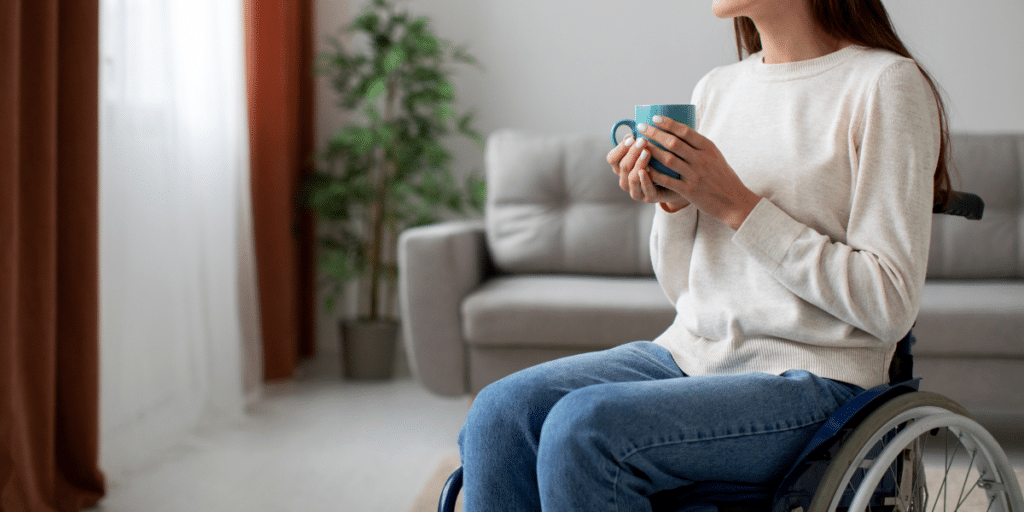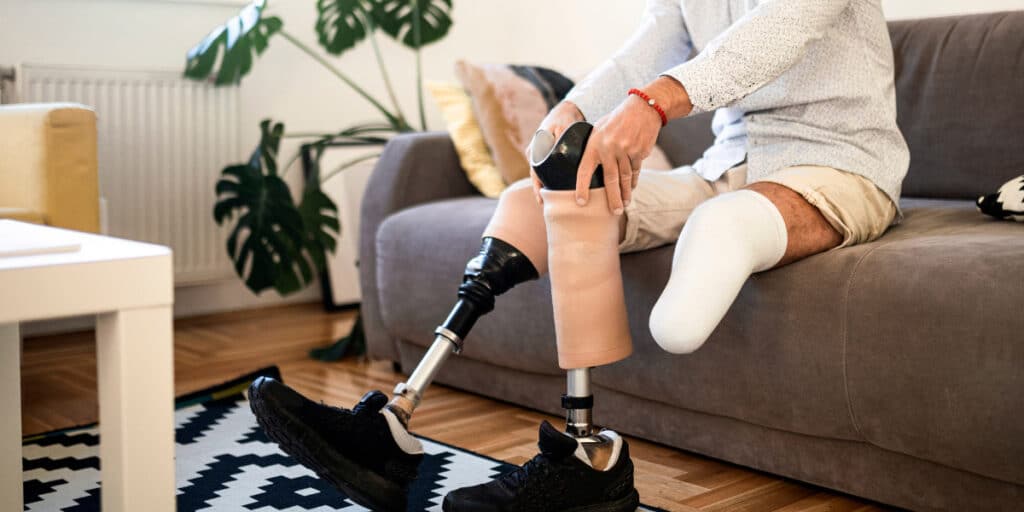Blog Category: SDA
Things to think about before moving to disability housing
Published - 02/05/2024
Author - Enliven Housing
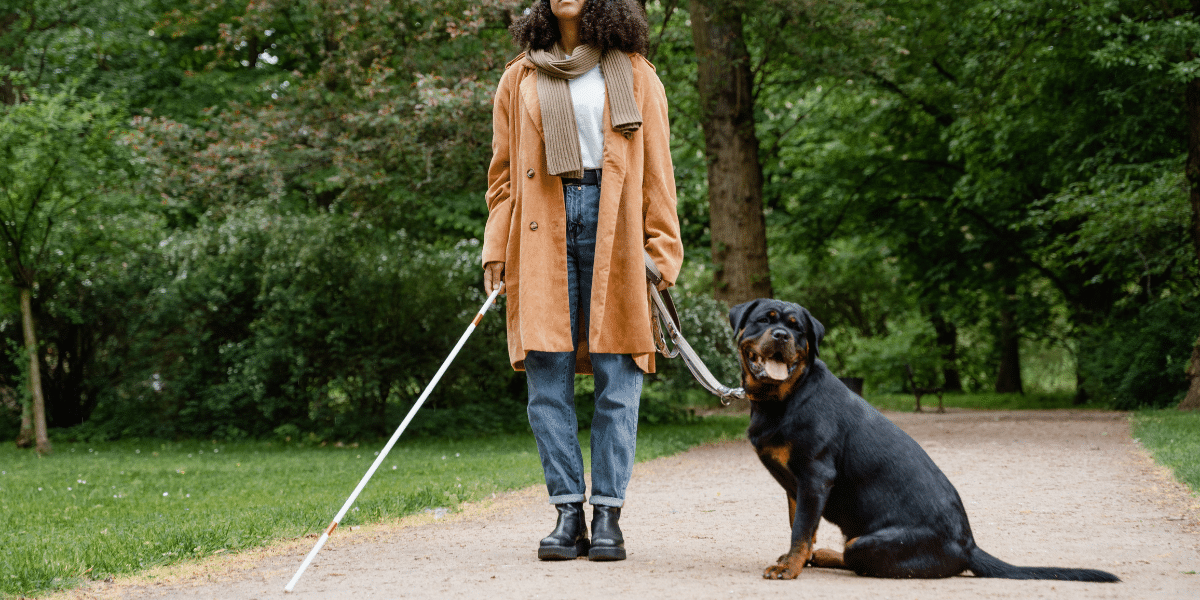
Are you considering disability housing but feeling a bit lost on how to kickstart the process? Don’t worry, you’re in good hands. One of the many benefits of being an NDIS participant is the opportunity for you to choose where you want to live, and who you want to live with. We understand that moving can be overwhelming, so here are some practical tips to turn your dream of independent living into a reality.
Quick links:
- Looking for the right disability housing
- Who will help me move?
- What do I need to consider?
- What to do on moving day?
Tip# 1: Looking for the right disability housing
With disability housing, you’ll find various options including houses, townhouses, duplexes, villas and apartments. These homes are designed to meet the needs of people with extreme functional impairments or very high support requirements. To ensure that the housing is suitable, it must adhere to specific design standards related to four SDA categories.
When it comes to SDA housing, there are different categories available, each catering to individual preferences which is outlined in your NDIS plan. These categories include:
- Basic
- Robust
- Improved Liveability
- Fully Accessible
- High Physical Support
For more information about the SDA Design Categories, check out our SDA Housing Guide.
Enliven Housing provides a distinctive way to assist you with your NDIS housing needs. We’re not just another provider – we specialise in three important SDA design categories: Improved Liveability, Fully Accessible, and High Physical Support SDA.
What sets us apart is our innovative “Blended Model” of support. Unlike other providers that often limit themselves to a single design category per SDA apartment, we take it a step further. Almost all of our SDA apartments are designed to cater to all three categories. This gives us the flexibility to offer you support across various SDA design categories.
Where to look?
Enliven Housing specialises in SDA apartments and has properties spread right across Australia. Our properties feature fully accessible and spacious bedrooms, bathrooms and living spaces. Additionally, all of our SDA apartments are 100% pet-friendly!
Explore our available disability housing apartments here: Find your SDA Home.
We stand out as more than just a disability housing provider. Every member of our team is in-house, ensuring consistency and reliability. Also, we regularly host open home events, offering you the opportunity to explore our SDA apartments, meet our friendly team, and have all your questions answered.
It’s crucial for you to visit the property personally. It’ll provide you with first-hand experience and insights into the property’s design and features. You’ll also get a feel for the neighbourhood, nearby facilities and the suburb’s accessibility. Gathering this information will help you make an informed decision about your disability housing choice.
You can book now to attend our Open Home Events. Alternatively, if you prefer, we can arrange a special appointment for you.
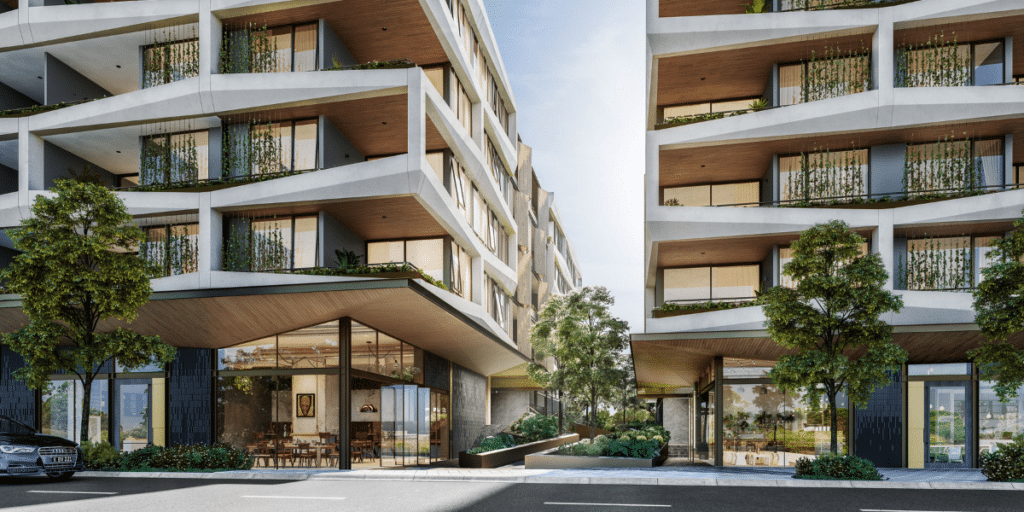
Tip# 2: Who will help me move?
Having the right people onboard is crucial for a smooth transition. So, together with your support coordinator, you can arrange a meeting with the key individuals in your circle you want to be involved. These individuals may include your family members, close friends, support providers, allied health staff and others. Your collaboration with them will ensure a smooth transition to your new disability housing. Always remember that you are not alone in this process.
When you’re transitioning to disability housing, the NDIS is committed to supporting your move with funding deemed ‘reasonable and necessary’ to ensure your success. But it’s important to note that the NDIS won’t cover day-to-day expenses unrelated to your disability, such as costs associated with movers or removalists.
With Enliven Housing, we’ll make your move to our SDA apartments as smooth as possible. Our friendly team is always available to cater to your needs.
Tip# 3: What do I need to consider?
When you visit the property and get a sense of the neighbourhood, it’s a good idea to check out the popular spots in the area that you’ll likely visit often. This step is crucial for your future comfort and convenience.
Public Transport
When your primary mode of transportation relies on buses or trains, then finding disability housing near accessible public transport becomes crucial. Living in close proximity to a train station or bus stop not only enhances convenience, but also reduces any unnecessary stress.
In Australia, most Local Government Areas offer community transport. If you qualify, your NDIS transport funding can cover your community transport. Also, exploring taxi subsidies is an option. For example, NSW residents can apply for the Taxi Transport Subsidy Scheme, and if eligible, they could receive a 50% subsidy on their taxi fare, with a cap of $60. This means they only need to cover the remaining fare. The subsidy applies to accessible taxis as well. You can check your state government website for more information.
Leisure
Living close to a shopping centre brings a lot of advantages, making life more convenient for you. Imagine having quick access to a variety of restaurants, cafes, supermarkets and stores for all your general shopping needs – it’s like having everything at your doorstep. Living near a park also creates a fantastic opportunity to socialise with your loved ones in a vibrant and lively environment.

Medical facility
Living near a hospital, medical centre and chemist comes with benefits. It’s convenient when you have to see your healthcare providers. Plus, it brings peace of mind knowing you can easily access these services whenever you need them.
Removalist
Moving can be made much easier with the help of removalists. They handle the packing, carrying and transportation of your belongings, whether you’re moving within the same suburb or across the state. To ensure a smooth move, it’s wise to book your removalist about a month before your planned moving date. Take your time choosing the right company for your needs. Set a budget, get a written quote, and make sure to secure moving transit insurance.
Household items
Keep in mind that not all disability housing is furnished. So in many instances, it’ll be your responsibility to fit out your apartment with furniture and certain appliances.
Enliven Housing’s SDA apartments are unfurnished but they do come with essential appliances such as a range hood, cooktop, oven, washer and dryer. With an unfurnished SDA apartment, you can personalise the space to suit your taste, creating a comfortable and familiar living space. When furnishing your new home, start with the basics, such as a bed, couch, and dining table. As you shop for furniture and decor, consider your style and preferences.
Assistive Technology
If you’re eligible for Assistive Technology (AT), your disability housing can be customised with specialised features, designs, and a variety of technology. These modifications are designed to support your independence and safety within the comfort of your own home.
Enliven Housing partners with both you and your Occupational Therapist (OT) to understand your individual needs and preferences. This collaboration allows us to identify and install the right AT and home modifications tailored to you based on your NDIS plan. Quotes could also be provided if funding is not available in your NDIS plan.
Day-to-day supports
When considering disability housing, you might need a different support network. Collaborate with your support coordinator to help you arrange a support team that suits your needs, assisting you in adjusting to your new lifestyle and surroundings.
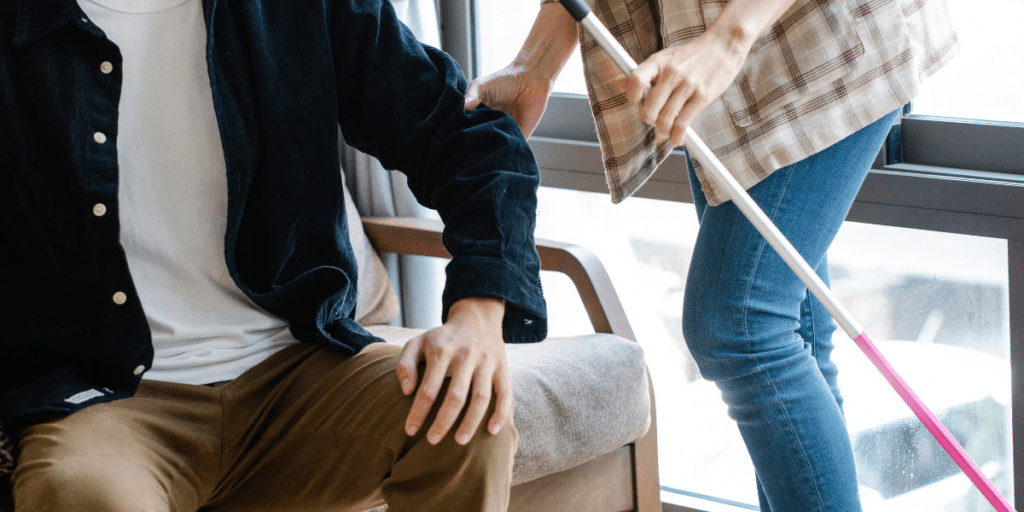
How much rent will I pay?
Money can be a source of stress for some people, and figuring out how it all fits together can add to the confusion. For instance, have you thought about what your NDIS funding will cover versus what you might need to pay out of your pocket?
If you qualify for SDA funding, you may get help to cover extra housing costs beyond the basics like food and bills. But you’ll still need to make a fair contribution towards your rent. This includes 25% of your Disability Support Pension, another 25% from your Pension Supplement and the entire amount of Commonwealth Rent Assistance.
Tip# 4: What to do on moving day?
As moving day approaches, keep these handy tips in mind to make your transition to your new SDA home as seamless as possible:
1. Essentials: Pack a box or suitcase with all the must-haves for your first day in your new home. This includes a change of clothes, electronics, toiletries, medications and anything else you’ll need immediately.
2. Stay energised: Don’t forget to pack snacks and water to keep your energy up throughout the day. Moving can be demanding, so having refreshments on hand is a small but essential detail.
3. Coordinate with movers: Ensure a smooth process by providing your movers with the exact locations and times for both pickup and drop-off. Clear communication helps everyone stay on the same page.
4. Emergency contacts: Keep the number of your Onsite Support Provider (OSP) readily available. Having a direct contact with your OSP can be vital in case of emergency.
5. Update NDIA contacts: Make sure your contacts are up to date with the National Disability Insurance Agency (NDIA). This ensures that you can easily reach out for assistance or updates during the move.
6. Notify service providers: Inform your service providers about your change of address, including utilities, phone, insurance, and any other essential services. This way, you’ll continue to receive important communications without interruption.
Here are a few more considerations specific to settling into your new SDA home:
- Keys: Has the landlord handed over the access keys for my SDA home?
- Know your space: Have I scheduled an orientation with the OSP for a helpful rundown on everything about my new home?
- Documents: Does my Support Coordinator or carer have copies of the Tenancy and Service agreement documents as it’s always good to have those on hand?
- Chemist: Do I have an account set up with my new local chemist with all my necessary medications and Webster-pak?
Meet your new community
Feeling at home is all about connecting with those around you. If you’re living in an SDA apartment, consider attending your local event to mingle with your fellow residents. If you’re living in an SDA group home, you could organise dinner with your housemates for a friendly introduction. Actively participating in your community will help you settle in smoothly and create a sense of belonging.
Enliven Housing offers a unique approach. Once you move in, you become part of a Community Cooperative. This cooperative is a supportive network where tenants in the same SDA apartment complex come together voluntarily to share the costs of the onsite support with other tenants with disability. As a part of this cooperative, you and your fellow tenants collaborate to shape it around your interests and needs. This cooperative closely collaborates with an OSP, which operates independently and is managed by separate organisations.
Check out our Community Cooperative page for more information.
Explore your new suburb
Explore your new neighbourhood and surrounding areas to familiarise yourself with the local amenities. If you aren’t sure where to start, talk to the locals for tips on the best places to visit and things to do in the area. Stroll or roll through your surroundings, exploring local shops and eateries to soak in the vibe of the area, including its unique culture and cuisine.
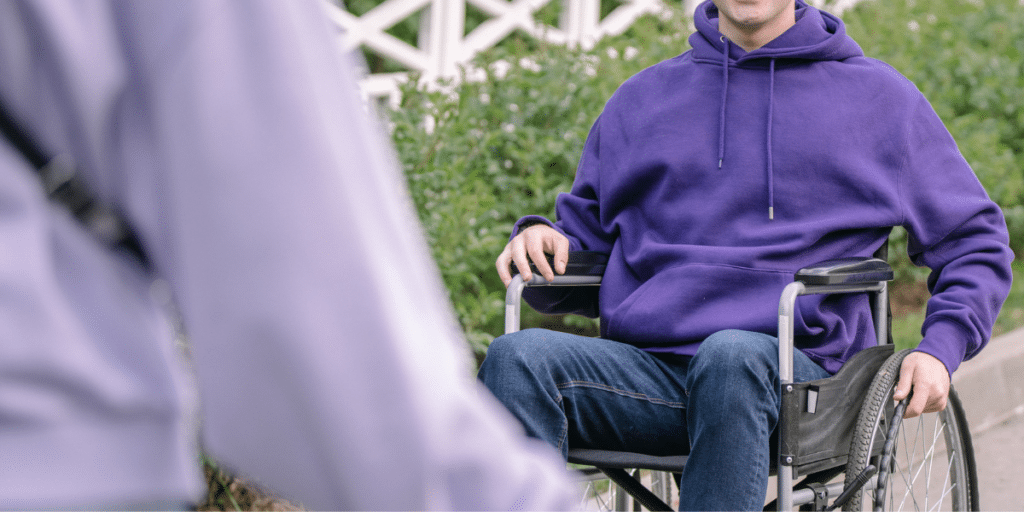
Hopefully this guide has been helpful to you. If you still have questions about what steps to take before moving to your disability housing, you can reach us by hitting the Call Us or Chat Now button below.

Speak to our team
Related Blog Posts
How are SDA Apartments different from other disability housing?
This guide will help you understand the differences between SDA apartments and other types of disability housing.
The Separation of NDIS housing and disability supports
The separation will give participants more freedom and control and will enable them to change their support or accommodation provider without having to change both.
